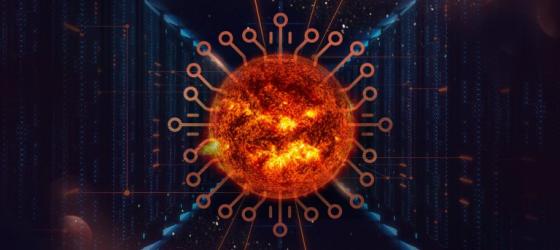Where and when
Sofia, Bulgaria – April 19th-21st, 2023
"The MCH23 Conference is an hybrid interdisciplinary workshop focused on applications of Computer Vision and Machine / Deep Learning techniques to heliophysics research and forecasting frameworks, as well on the integration of these techniques into modeling efforts of solar and heliospheric phenomena" [source: https://mosaiics.astro.bas.bg/]
"The main topics of the conference will be: applications of computer vision and machine learning to the modeling of the solar dynamo, solar activity (eruptions, explosions, high energy particles); space weather forecasting; magnetospheres (terrestrial and planetary) and ionospheres; new techniques and open source software applications; heliospheric radio emissions. – The workshop is hosted by the Institute of Astronomy with the National Astronomical Observatory at the BAS. The conference is part of the MOSAIICS project under the VIHREN national science programme" [source: https://mediabricks.bg/]
Conference programme / Abstract book
The MIDA group will take part in the conference with an invited talk:
Title: Artificial intelligence for space weather forecasting: data-driven and physics informed approaches in research and operational settings.
Speaker: Michele Piana
Abstract: In my view, the usability of machine learning for space weather forecasting still poses the following three open issues: 1) Which is the most reliable way to quantitatively assess the prediction performances in the highly dynamical framework of heliophysics conditions? 2) Is the research-to-operation transition actually feasible by means of data-driven AI-based algorithms? And, eventually, 3) Can this transition be facilitated by encoding information provided by physical models into the computational procedures required for the training and optimization of the learning network schemes? Focusing on flares and coronal mass ejections forecasting, I will show that value-weighted skill scores are specifically appropriate for validating the prediction power of machine/deep learning algorithms, how the training procedure of neural networks can account for the part of the solar cycle progression when the prediction is requested, and to what extent deterministic propagation models and considerations about the physical dimension of data descriptors can be exploited to improve the forecasting power of machine learning.
Authors: Michele Piana, Sabrina Guastavino, Federico Benvenuto and Francesco Marchetti.
Credits
Source of the featured photo: https://mosaiics.astro.bas.bg/
